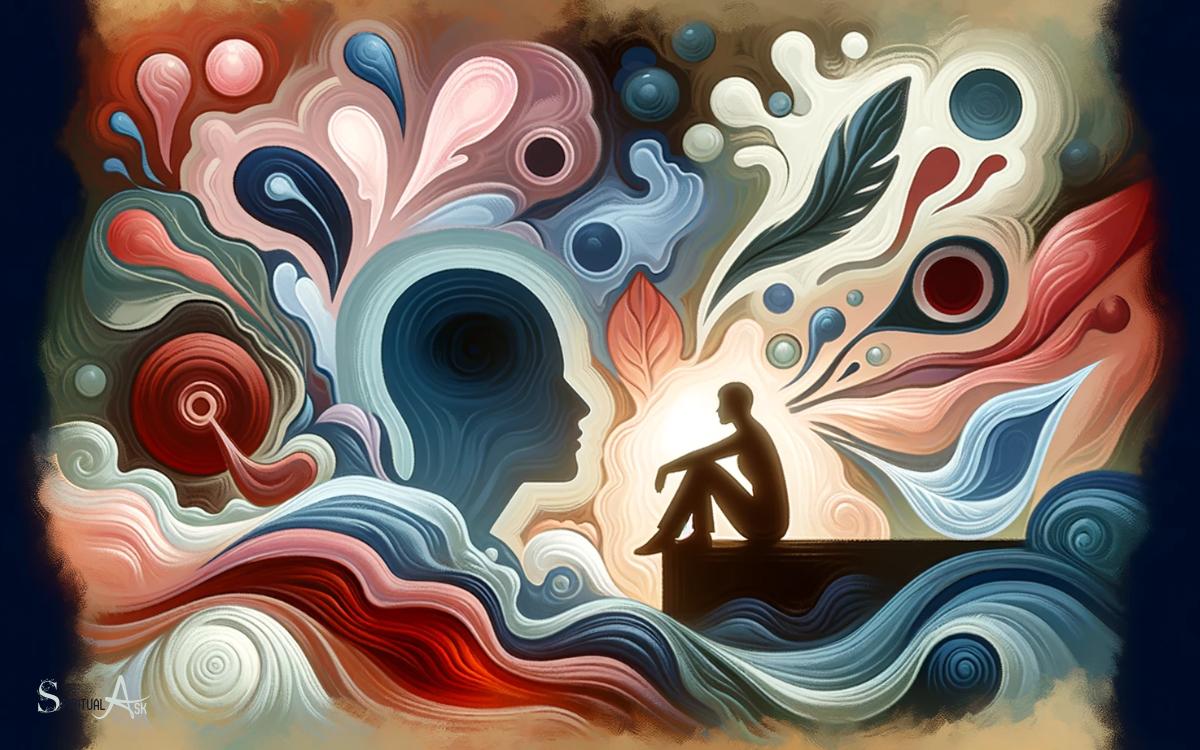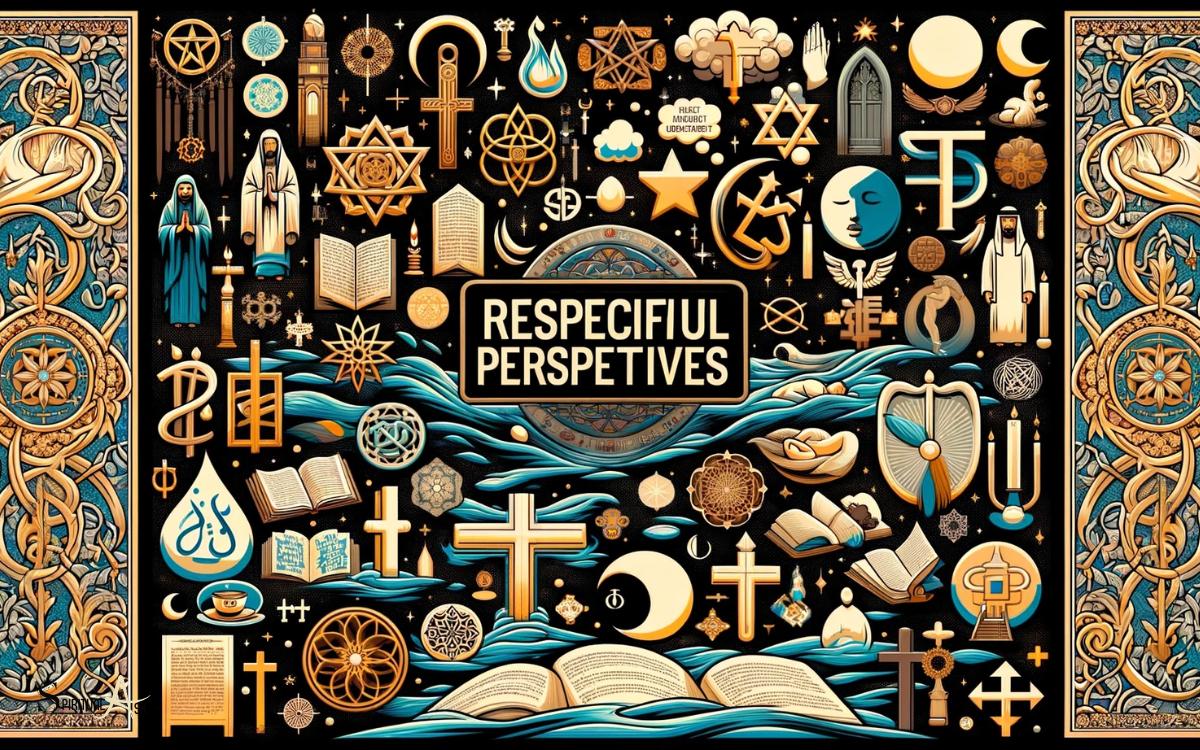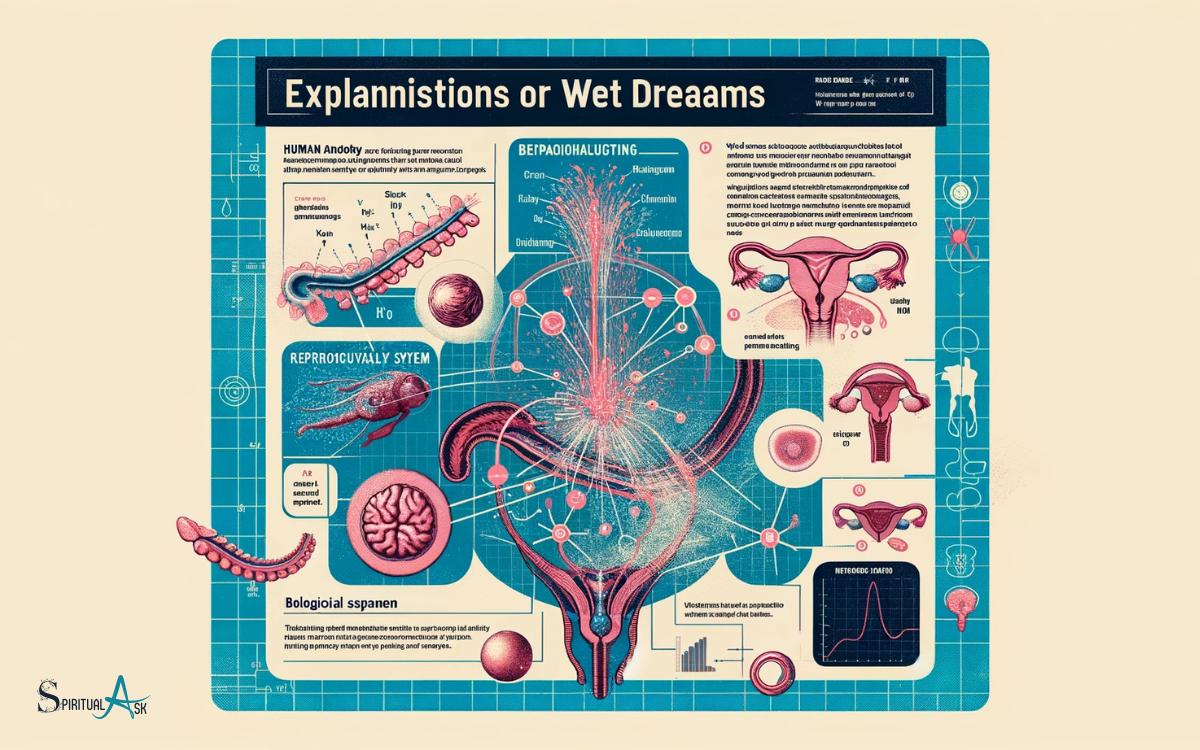Are Wet Dreams a Spiritual Attack? No!
No, wet dreams are not a spiritual attack. They are a natural biological process.
Wet dreams, also known as nocturnal emissions, are involuntary ejaculations that occur during sleep. They are a common experience, especially among adolescents and young adults.
While various cultures have their own interpretations, from a scientific perspective, wet dreams are part of normal sexual development and not indicative of any spiritual interference.
Understanding wet dreams as a natural part of sexual health is essential. Dispelling myths promotes a healthy acceptance of one’s body and its functions.

Key Takeaway
6 Belief Systems: Are Wet Dreams a Spiritual Attack
| Belief System | View on Wet Dreams | Interpretation as Spiritual Attack | Explanation |
| Christianity | Natural phenomenon | Unlikely | Wet dreams are often seen as a natural biological process and not directly associated with spiritual attacks. However, some conservative groups may view them as a result of temptation or sinful thoughts. |
| Islam | Natural phenomenon | Unlikely | Wet dreams are considered a natural occurrence in Islamic teachings and are not generally seen as a spiritual attack. However, they may be seen as a test of one’s faith and self-control. |
| Hinduism | Natural phenomenon | Unlikely | Wet dreams are typically seen as a part of the natural human experience in Hinduism and are not considered a spiritual attack. However, some spiritual practices emphasize the importance of controlling sexual desires and energy. |
| Buddhism | Natural phenomenon | Unlikely | In Buddhism, wet dreams are regarded as a natural bodily function and are not seen as a spiritual attack. However, they may serve as a reminder of the impermanence of sensory pleasures and the importance of mindfulness. |
| New Age | Varies | Possible | New Age beliefs encompass a wide range of views, and some may see wet dreams as a result of negative energies or spiritual disturbances. However, others may view them as a natural part of human experience. |
| Atheism | Natural phenomenon | No | Atheists typically do not believe in spiritual attacks and view wet dreams as a natural biological process. |
Understanding Wet Dreams in Different Cultures
One may observe variations in the cultural interpretations of wet dreams across different societies, highlighting the diversity of beliefs and attitudes toward this natural physiological phenomenon.

In some cultures, wet dreams are viewed as a normal part of adolescent development, while in others, they may be seen as taboo or even spiritually significant.
For example, in certain traditional societies, wet dreams are considered a sign of maturation and readiness for adulthood. Conversely, in conservative or religious communities, they might be perceived as impure or sinful.
Understanding these cultural variations is crucial in appreciating the complexity and diversity of human beliefs and behaviors. It also emphasizes the importance of cultural sensitivity and open-mindedness when discussing sensitive topics such as wet dreams.
The Psychological and Emotional Impact
The cultural interpretations of wet dreams across different societies highlight the diversity of beliefs and attitudes toward this natural physiological phenomenon, and they can have a significant psychological and emotional impact on individuals.

For many, experiencing a wet dream can evoke feelings of confusion, shame, and anxiety due to cultural or religious stigmas attached to sexual experiences.
It can also lead to a sense of guilt or fear, particularly in individuals who struggle with reconciling their natural bodily functions with societal or religious expectations.
Moreover, the lack of open and honest discussions about wet dreams in many cultures can contribute to a sense of isolation and distress for those who experience them.
Understanding the psychological and emotional impact of wet dreams is crucial in addressing the well-being of individuals who may be affected by them.
This psychological and emotional impact extends into religious perspectives on wet dreams.
Religious Perspectives on Wet Dreams
Religious perspectives on wet dreams vary widely across different cultures and faith traditions, reflecting the diversity of beliefs and attitudes toward this natural physiological phenomenon.

In some religions, wet dreams are considered a normal part of human development and are not seen as spiritually problematic.
For example, in Islam, wet dreams are viewed as natural and are not considered sinful.
However, in other religious traditions, wet dreams may be seen as impure or spiritually troubling. For instance, in certain branches of Christianity, there may be teachings about the need for purity and control over one’s sexual desires, which could lead to negative views on wet dreams.
Understanding these diverse religious perspectives can provide insight into the varying ways in which different faith traditions approach and interpret the experience of wet dreams.
Moving forward, it is important to explore spiritual practices for managing wet dreams.
Spiritual Practices for Managing Wet Dreams

Exploring effective spiritual practices for managing wet dreams can provide individuals with valuable tools for navigating this natural physiological experience.
Here are some spiritual practices that can help manage wet dreams:
- Meditation: Engaging in regular meditation can help calm the mind and reduce stress, which may in turn help manage the frequency of wet dreams.
- Prayer: For individuals with religious beliefs, prayer can provide a sense of spiritual connection and peace, which may help in managing the emotional aspects of wet dreams.
- Yoga: Practicing yoga can help individuals connect with their bodies, reduce anxiety, and promote overall well-being, potentially contributing to managing wet dreams.
- Mindfulness: Cultivating mindfulness through practices such as deep breathing and self-awareness can help individuals stay grounded and more in control of their thoughts and emotions, potentially aiding in managing wet dreams.
Exploring the Scientific Explanations
In the exploration of scientific explanations for wet dreams, it is essential to consider the intersection of spirituality and neurological factors.

This involves understanding the potential physiological triggers and responses that contribute to the occurrence of wet dreams.
Additionally, examining the impact of hormones, brain activity, and psychological influences can provide valuable insights into the scientific aspects of this natural phenomenon.
Wet Dreams and Spirituality
The scientific examination of the phenomenon of wet dreams provides insight into the physiological and psychological factors involved.
When exploring the intersection of wet dreams and spirituality, it’s important to consider the following:
- Hormonal fluctuations during sleep
- Psychological arousal and dreams
- Cultural and religious interpretations
- Individual beliefs and perceptions
These elements collectively contribute to the understanding of how wet dreams may intersect with spirituality.
By delving into the scientific explanations, we can gain a deeper understanding of the complexities surrounding this topic.
Moving forward, it is essential to consider the neurological factors in wet dreams to fully grasp the multidimensional nature of this phenomenon.
Neurological Factors in Wet Dreams

What are the neurological factors involved in wet dreams, and how do they align with scientific explanations?
Wet dreams, also known as nocturnal emissions, are a natural physiological process. During sleep, the brain may experience increased activity, leading to heightened arousal and stimulation of the reproductive system.
This can result in spontaneous ejaculation in males and vaginal lubrication in females. Neurologically, wet dreams are linked to the activation of the autonomic nervous system, particularly during the rapid eye movement (REM) stage of sleep.
Scientifically, wet dreams are considered a normal part of sexual development and are influenced by hormonal changes, sexual maturation, and overall sexual health.
Understanding the neurological aspects of wet dreams provides insight into the natural processes governing sexual arousal and activity during sleep.
The next section will explore coping strategies for individuals experiencing wet dreams.
Coping Strategies for Individuals

Individuals experiencing wet dreams can employ various coping strategies to manage the psychological and emotional effects.
Here are some effective coping strategies:
- Education: Understanding that wet dreams are a normal physiological occurrence can alleviate the anxiety and guilt often associated with them.
- Healthy Lifestyle: Engaging in regular exercise, maintaining a balanced diet, and practicing stress-reducing activities can help manage hormonal fluctuations that may contribute to wet dreams.
- Open Communication: Talking to a trusted individual, such as a healthcare professional or a religious leader, can provide reassurance and guidance in coping with wet dreams.
- Mindfulness Practices: Incorporating mindfulness meditation or relaxation techniques can help individuals manage the emotional distress related to wet dreams.
Understanding effective coping strategies can help individuals navigate the psychological and emotional effects of wet dreams.
Now, let’s delve into addressing taboos and misconceptions surrounding wet dreams.
Addressing Taboos and Misconceptions
Addressing taboos and misconceptions surrounding wet dreams is essential to promote understanding and dispel unfounded beliefs.

Many cultures and societies have perpetuated myths and misunderstandings about wet dreams, leading to shame and confusion for those experiencing them.
It’s crucial to debunk these misconceptions and approach the topic with sensitivity and factual information.
| Misconception | Truth | Impact |
|---|---|---|
| Wet dreams are a sign of immorality | Wet dreams are a natural bodily function | Reduces guilt and shame |
| Only males experience wet dreams | Females can also have wet dreams | Validates experiences |
| Wet dreams decrease with age | Frequency varies and can continue into adulthood | Alleviates anxiety about frequency |
| Wet dreams are a result of spiritual attacks | Wet dreams are a physiological response | Provides reassurance |
| Wet dreams indicate a lack of self-control | Wet dreams are not consciously controlled | Reduces self-blame and stigma |
Conclusion
It is important to recognize that wet dreams are a universal experience with various cultural, psychological, religious, and spiritual implications.
Despite common misconceptions, wet dreams are a natural and normal occurrence that can be managed through spiritual practices and coping strategies. One way to manage wet dreams is through spiritual practices such as meditation, prayer, and mindfulness. By connecting with a higher power, individuals can find strength and control over their sexual urges and dreams. It’s also important to remember that wet dreams are not shameful or sinful; they are simply part of the natural human experience. Additionally, some cultures believe in the spiritual symbolism of urinating blood, viewing it as a sign of purging negative energy or emotions.
It is interesting to note that a study found that 83% of men and 37% of women have experienced at least one wet dream in their lifetime, highlighting the widespread nature of this phenomenon.






